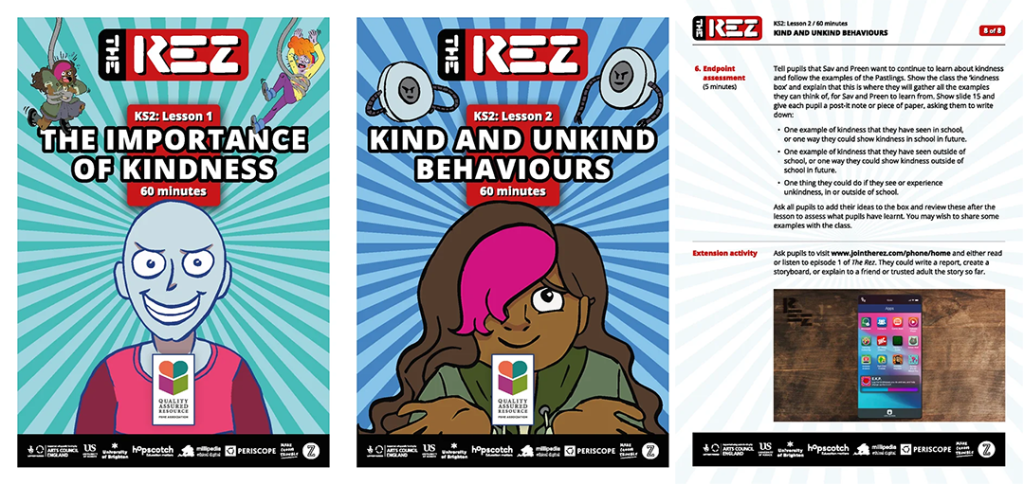Orchids, Poo Sprinkles and Us…
That’s the name of one of the podcasts created by work experience students detailing their experiences of their placement week at the glorious botanic garden, Wakehurst, in Sussex, part of the Royal Botanic Gardens, Kew. So if you’re interested in finding out what poo sprinkles are, give them a listen (below)!
They created the podcasts on the final day of their placement with Make (Good) Trouble. Our one-day workshop is designed to help young people to make sense of their work placements, articulate what they’ve learnt, and sharpen their communication, and listening skills. It also helps them to prepare for future job interviews.
We were invited to devise and deliver a workshop that encourages young people to think about all the things they have learnt on their placement, and to disseminate that into a podcast and written piece for their CV. We also included training in interview techniques and how to use audio recording equipment, which they loved! The groups recorded interviews with each other, describing their week, as well as sound effects from the gardens to help build an aural picture of their experiences.
The result is two amazing podcasts. We could hear how they had thrived at Wakehurst, working in different areas of the organisation – from marketing, education, and horticulture to the Millennium Seed Bank and the Visitor Centre. (It’s something I’d have loved to have the opportunity to do when I was younger!)
“You’ll definitely enjoy this experience if you’re interested in conserving nature and protecting the planet, because it makes you feel that you’re actually making a difference.”
“My top tips for the next person doing the Horticulture Department would be – just be prepared. You will not want to leave. At least I have not been wanting to leave. And I really want to come back here and volunteer and possibly get a job later on.”
So grab a coffee and listen to the brilliant work of these young people.
👋 If you’re interested in us augmenting your organisation’s work placements with a Make (Good) Trouble workshop, let us know!
🌳 Wakehurst work placements are open to young people aged 14-18. Contact wakehurstworkexperience@kew.org for information on how to apply.

